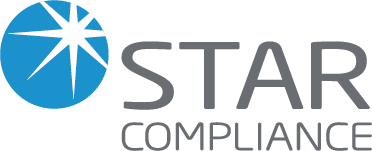Why mobile matters, why you shouldn't limit yourself when it comes to possible solutions, and why it's all about asking the right questions
Iron your shirt. Stand up straight. Give a firm handshake. First impressions count. At least that's what we're always told, right? The 2019 Star US Conference did all that and more. Following are first impressions and initial takeaways from our best-attended Star conference yet.
1. A MOBILE WORKFORCE NEEDS MOBILE SOLUTIONS
The "Going Mobile With Star" breakout sessions were dedicated to in-depth explorations of Star's new mobile app: STAR Mobile. Some key stats that emerged, courtesy of Star Director Of Product Management Will Haggerty, gave attendees a good idea of not just how often people turn to mobile apps—more than ever, as you might have already guessed—but for what ends:
- 79% of smartphone users make purchases online.
- 40% of ecommerce sales in 2018 were conducted via mobile app or mobile website.
- People spend 50% more time on websites when on a desktop app versus when they're on a mobile app.
- People view twice as many pages when they're on a desktop app versus when they're on a mobile app.
Per Haggerty, Star took this confirmatory data to heart as it set out to design STAR Mobile: "What were our goals? Foremost was the user experience: being sure users have a good app experience from login through submission. Then we looked at what would most likely be done via mobile. What we came back with was, it's really about those impromptu, time-sensitive tasks. Personal trade pre-clearances. Gift and entertainment declarations. Edits. Updates. Reporting. Things that when employees leave home for the day or walk away from their desks they're not planning on doing. This thinking also applied to reviews. You're a supervisor, you're away from your desk, and a time-sensitive issue suddenly arises that would be better dealt with sooner rather than later. These kinds of situations were our priorities with STAR Mobile."
2. CONTROL ROOM IS ABOUT CONTROLLING INFORMATION
"It's about keeping up with the information. That's what control room is." So offered one of the panelists from "Making The Modern Control Room"—a panel discussion designed to get at the heart of how today's control room operates and what the future holds for this increasingly important and regulated compliance function. Two of the panelists were longtime control room veterans, one of whom ventured the above, and the other panelist was StarCompliance CEO Jennifer Sun. Star Director Of Product Strategy & Marketing Tim Ward moderated.
One of the things the future definitely holds for control room is automation. This will come as no great surprise, given how much of modern personal and professional existence is already heading in that direction. Star has a brand new control room product of its own, Compliance Control Room, which Jennifer and Tim were able to speak about at length and weave into the greater conversation about how such a software solution can help investment banks, asset management firms, and private equity firms—concerned with managing and monitoring deal-related conflicts—better keep the information zigzagging across their firm under control.
A final comment from one of the panelists, which stood out as a necessary qualifier to the overall theme of automation, was: "You still need very experienced people in control room." This gets at the critical notion that compliance software is not meant to be a people-cutting tool. It's meant to be a work-cutting tool: the tedious and time-consuming manual work that keeps compliance officers from performing the higher-cognition tasks they're more suited for.
3. DON'T LIMIT YOURSELF TO THE DATA YOU HAVE
Another immensely popular breakout session was "Leveraging Data & Predictive Analytics For Compliance." With the subject of data and how to manage it as conversationally dominant as ever in the business community, it will come as no surprise that this was a very well-attended session. But it may come as a surprise that the person running the session—Brian Brinkmann of Logi Analytics—offered that the most important question you can ask when considering an analytics investment isn't a technical one; it's a business one.
"Don't limit yourself to the data you have," says Brinkmann. "That constrains what’s possible and can produce mediocre outcomes. Instead ask the business question, which will cut to the core of what you need to accomplish at a strategic level. Then build the business case that justifies the investment. Then get started with clear goals. Then go get all the data you need." While Brinkmann is a self-confessed techie, he's observed time and again that it's the more open-ended questions that do the most for customers in terms of achieving their business objectives. Tech and data are means to an end, then, not ends in themselves.
4. DON'T LIMIT YOURSELF TO THE SOLUTIONS YOU HAVE
In the process of running a business, especially one that's been around for a long time, it's very easy to fall into ruts. You've been doing certain things a certain way for what feels like forever, and it's difficult to get outside of the processes that are in place, especially if those processes are more or less getting the job done. That is: there are no alarm bells going off to force your attention onto, say, how your firm is currently handling its employees' paper and electronic broker statements. You have a team of people, working on a dedicated or as-needed basis, sitting at terminals entering trade data into your employee conflicts monitoring platform.
The system, such as it is, works. But is it working as efficiently as it could? Would the firm be better served if the people entering this trade data manually were put to use elsewhere? The "Simplifying Broker Statement Data Entry" breakout session addressed this dilemma that so many modern firms still face. Discount brokers are more and more in use by Gen Y and Gen Z employees and—as a way of keeping costs down—these brokers often don't provide electronic feeds. Star's Secure Data Entry service addresses this by providing a streamlined and secure process, supervised by Star staff, that gets employee statements input accurately and in a timely manner. In an age of high tech and machines talking to machines, Star's Secure Data Entry service is a wonderfully low-tech solution that does everything you need it to do without you having to ride herd over the people doing it or the process.
This all serves as a good reminder that, if you're experiencing some sort of business challenge and feel stumped as to exactly how to proceed, chances are there are others out there experiencing the same challenge as you. And very likely some bright spark has created a service you can buy, hire, or otherwise count on to get the job done. In other words, don't limit yourself or your firm solely to the solutions you have at hand.
5. TECH GETS A BAD RAP WHEN IT COMES TO COMMUNICATIONS
The received wisdom goes something like this: technology is bad for human communication. Because it's so easy to email, text, and chat, we're far less likely to have the kind of face-to-face interactions that used to be unavoidably common and unquestionably warmer. Even talking on the telephone, once seen as a sorry substitute for getting eyeball-to-eyeball, has declined as a result of digital messaging, and is spoken of wistfully as another casualty of the digital age.
But career coach and etiquette consultant Toni Purvis begs—very politely, of course—to differ. "Technology should allow more communication, not less," she says. "And that communication can be as warm and effective as any other, with just a little forethought." Purvis is CEO and founder of Paradigm One, a consulting firm that provides customized coaching and curricula for individuals, groups, and organizations. Having worked in equities at Goldman Sachs and in diversity recruiting at Booz Allen Hamilton, Purvis knows business and she knows people.
At the Star Conference, she ran "The Art Of Conversation & Communication Workshop." Her focus was on keeping communications authentic, no matter how they're conducted. Under her firm but thoughtful guidance, workshop participants were drawn out of their conference-shells and comfort zones and asked to participate in a range of exercises designed to get them talking to, confiding in, and trusting one another. And that's precisely what happened.
Compliance professionals—known more for their reserve than their gregariousness—opened up and laughed their way through every exercise Purvis threw at them, and by the end found themselves hamming it up and acting out improvised persuasive arguments at the front of class. Workshops like this typically start out awkwardly, but the successful ones end up as authentic experiences, where the participants take something genuine away. This was one of those.



